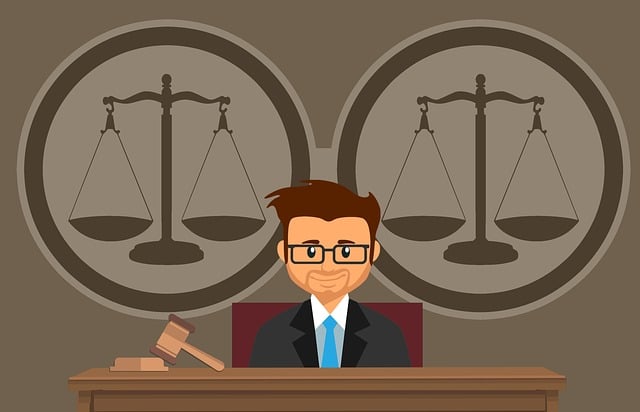Choosing the right law office equipment, including computers and monitors, is crucial for enhancing productivity and efficiency in legal practices. Consider case management software, document review, and collaboration tools to identify specific needs. Prioritize powerful processing, ample RAM, large storage, high-resolution monitors with adjustable settings, multiple displays (flat-panel LCDs, LED/OLED), ergonomic designs, robust security solutions, reliable external hard drives, cloud storage, encryption, access control, and energy-efficient models from reputable brands or refurbished options. Balance cost and quality to ensure top-tier technology without exceeding the budget.
Selecting the right computers and monitors is crucial for a modern law office, where efficient technology enhances productivity and supports legal practice. This comprehensive guide navigates the process of choosing hardware tailored to your firm’s unique needs. We explore essential features, monitor types, storage security, and cost-effective solutions, ensuring your investment in law office equipment aligns with your operational demands and budget.
- Understanding Your Law Office's Unique Needs
- Essential Features for Legal Practice Computers
- Monitor Types and Their Applications in Law Firms
- Storage and Security Considerations for Law Office Equipment
- Cost-Effective Solutions Without Sacrificing Quality
Understanding Your Law Office's Unique Needs
Choosing the right computers and monitors for a legal practice starts with understanding your law office’s unique needs. Each firm has specific requirements driven by factors such as case management software, document review, and collaboration tools. For instance, while a small solo practice might require a budget-friendly setup with a standard monitor and efficient laptop, a large corporate law firm handling complex cases may demand powerful workstations with high-resolution displays to handle demanding legal software and extensive document reviews.
Consider the types of tasks your lawyers perform daily. Do they need advanced graphic capabilities for creating visual presentations or researching case law? Is secure data storage and access from multiple locations a priority? Understanding these needs will guide you in selecting equipment that enhances productivity, supports workflow efficiency, and aligns with the specific demands of your law office—ultimately ensuring your team works smarter, not harder.
Essential Features for Legal Practice Computers
When equipping a law office, selecting computers and monitors that meet the specific needs of legal practice is paramount. Essential features for legal practice computers include robust processing power to handle demanding software like case management systems and document editing tools, ensuring smooth and efficient operations throughout the day. Additionally, ample memory (RAM) is crucial for multitasking, as lawyers often work with multiple cases and applications simultaneously.
Storage capacity should also be a key consideration; legal professionals deal with a vast amount of data, from case files to research documents. Opting for computers with large hard drives or solid-state drives (SSDs) allows for seamless access and management of these extensive digital archives. Moreover, monitors equipped with high resolutions and adjustable settings cater to the visual demands of legal work, facilitating clear readability and reducing eye strain during extended use.
Monitor Types and Their Applications in Law Firms
In a law firm, the choice of monitor type can significantly impact productivity and efficiency. Law offices often require multiple displays to manage various tasks simultaneously, such as legal research, document drafting, case management software, and communication tools. Flat-panel LCD monitors are popular due to their space-saving design and long-lasting performance, ideal for extended work sessions. For those who deal with detailed work or need more screen real estate, larger LED or OLED displays offer enhanced color accuracy and higher resolution, crucial for reviewing documents and presenting evidence.
Additionally, touch-sensitive screens have gained traction in law offices, enabling intuitive navigation through case files and software applications. These monitors facilitate faster data retrieval and can streamline workflows, especially during client meetings or court appearances where quick access to information is essential. When selecting monitors as part of law office equipment, it’s also important to consider ergonomic features for comfort during long working hours.
Storage and Security Considerations for Law Office Equipment
When equipping a law office, it’s essential to consider robust storage and security solutions for sensitive data. Law office equipment should include reliable external hard drives or cloud storage systems to safeguard client files, case documents, and confidential information. Implementing robust password protection, encryption technologies, and access control measures is crucial to prevent unauthorized access and potential data breaches.
Additionally, investing in secure monitor covers, locking cabinets, and safe storage areas for laptops and other devices can further enhance security. Regular backups and disaster recovery plans are also vital components of a comprehensive security strategy, ensuring that the law office’s digital assets remain intact and accessible even in the event of hardware failure or cyberattacks.
Cost-Effective Solutions Without Sacrificing Quality
When setting up or upgrading a law office, it’s natural to prioritize cost-effectiveness while ensuring top-tier quality for essential equipment like computers and monitors. Luckily, today’s market offers a range of options that balance affordability with performance. Opting for energy-efficient models can significantly reduce long-term costs, as these devices consume less power without compromising speed or functionality.
Choosing reputable brands known for their reliable products is another strategic move. While initial investment might be higher, these manufacturers often provide robust hardware and longer warranties, ensuring minimal downtime and reducing future replacement expenses. Additionally, exploring refurbished options from trusted sources can deliver substantial savings on high-quality equipment without sacrificing the performance needed for demanding legal software and research.
When equipping your law office, prioritizing the right law office equipment is key. By understanding your practice’s specific needs, selecting computers and monitors with essential features, and considering security aspects, you can create an efficient workspace. Choose from various monitor types to suit different tasks, all while keeping cost-effectiveness in mind. Investing in quality law office equipment will support your legal work, ensuring productivity and smooth operations.
